Hoy 2 de abril quienes somo padres de un niño autista nos unimos a la voces del mundo que piden mayor conciencia con el autismo. Es un dia para celebrar los esfuerzos que organizaciones mundiales, gobiernos y personas realizan para lograr una mayor inclusión para quienes son neuro-divergentes. No es un dia para celebrar el autismo, he visto publicaciones que dicen: Feliz dia del Autismo, lo cual para mi esta mal, hoy celebramos el Día Mundial de Concienciación sobre el Autismo.
>#### Neurodiversity doesn't hide | We don't celebrate Autism, we celebrate inclusion
>Today, April 2nd, those of us who are parents of autistic children join the voices of the world calling for greater autism awareness. It's a day to celebrate the efforts that global organizations, governments, and individuals are making to achieve greater inclusion for those who are neurodivergent. It's not a day to celebrate autism itself; I've seen posts that say, "Happy Autism Day," which, to me, is wrong. Today, we celebrate World Autism Awareness Day.
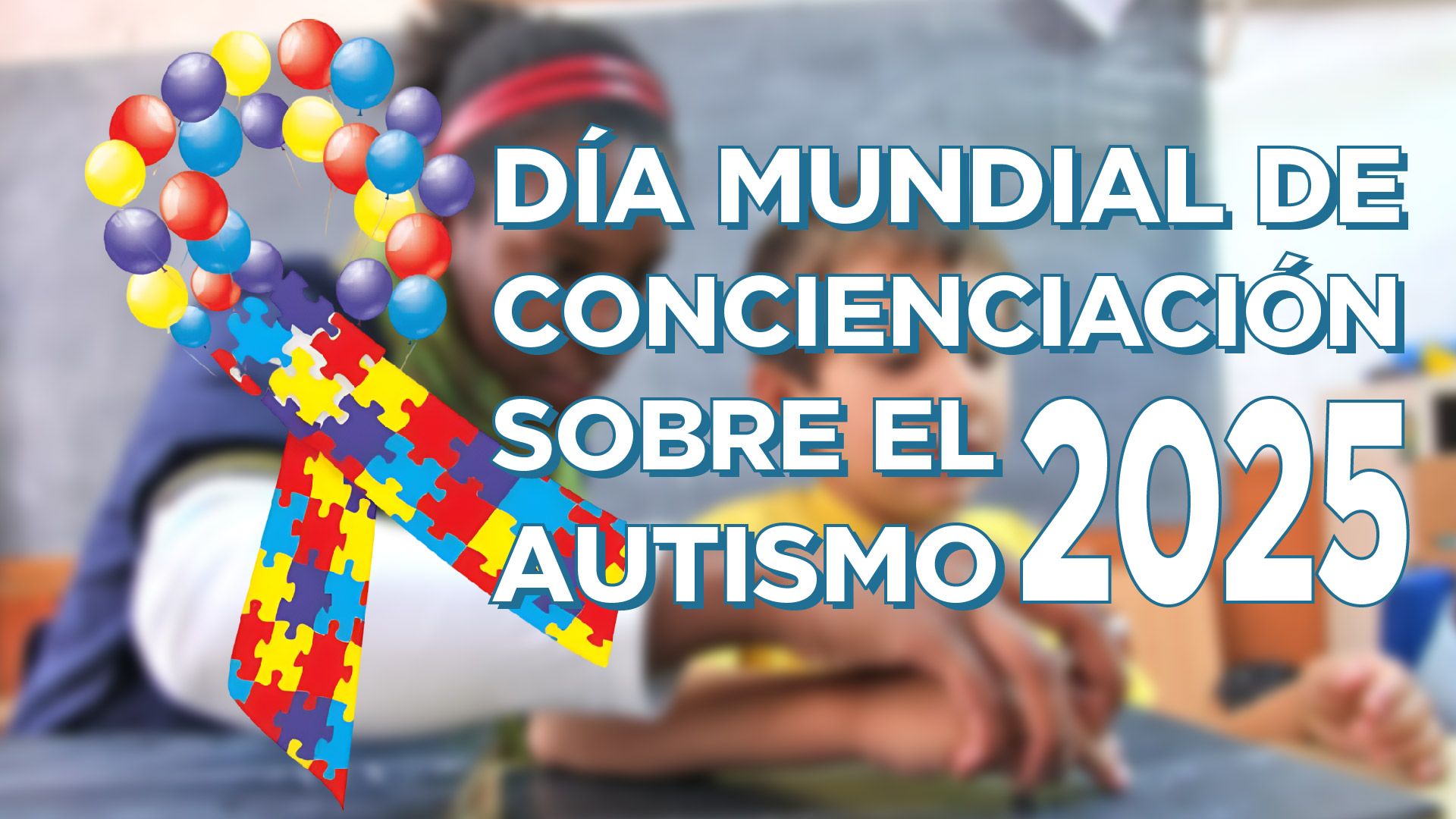
Hoy al llegar a la escuela de mi hija me encontré con el cartel que ven en la siguiente fotografía, de inmediato pensé que estaba equivocado, es importante saber que no celebramos la condición, celebramos los esfuerzos para que nuestros hijos, familiares y amigos tengan acceso a las mismas oportunidades que los demás. Me sorprendió un poco que una institución como el colegio de mi hija que precisamente da oportunidad a niños neuro-divergentes, no comprenda eso.
>Today, when I arrived at my daughter's school, I found the sign you see in the following photograph. I immediately thought it was mistaken. It's important to know that we don't celebrate the condition; we celebrate the efforts to ensure that our children, family members, and friends have access to the same opportunities as everyone else. It surprised me a bit that an institution like my daughter's school, which specifically provides opportunities for neurodivergent children, doesn't understand that.
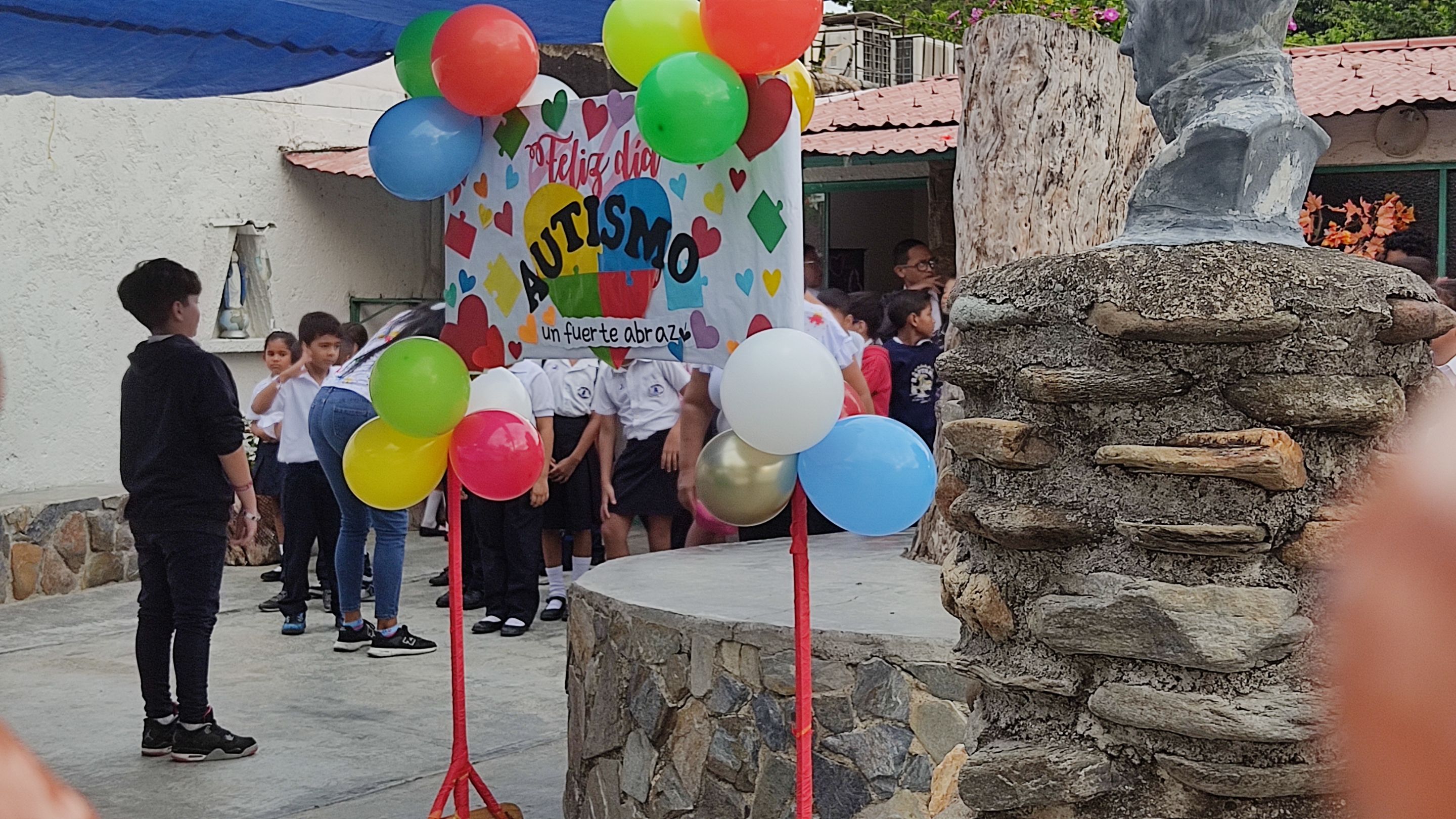
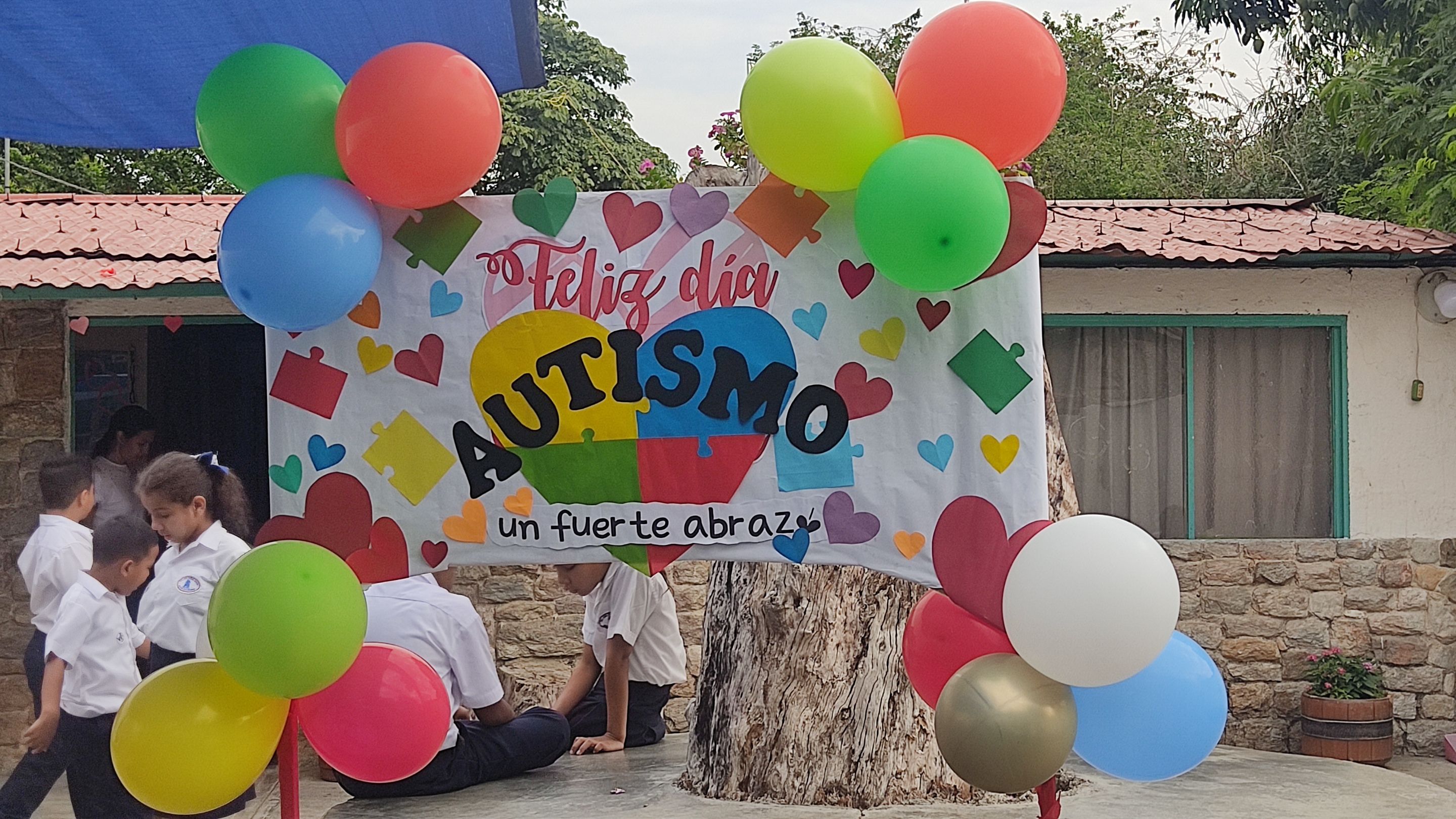
La celebración del Día Mundial 2025 esta acompañada del lema: "Fomentar la neurodiversidad y los Objetivos de Desarrollo Sostenible". La idea es resaltar las practica y politicas que estan logrando que mas de nuestros nuestros seres queridos autistas sean incluidos, por eso las Naciones Unidas lleva adelante una serie de actividades que expresan estas políticas, fue asi como termine participando en el foro para la inclusión del Instituto de Neurodiversidad.
>The 2025 World Day celebration is accompanied by the slogan: "Fostering Neurodiversity and the Sustainable Development Goals." The idea is to highlight the practices and policies that are enabling more of our autistic loved ones to be included. That's why the United Nations is carrying out a series of activities that express these policies. That's how I ended up participating in the Neurodiversity Institute's inclusion forum.
Me inscribi hace días para participar, pero no pude compartirlo con muchos por motivo de la barrera del idioma, ya que es una transmisión en vivo, no hay traducción a otros idiomas, y la mayoría de las familias que conozco con familiares autistas no hablan ingles, incluso me hubiera encantado compartirlo con las psicopedagogas de la escuela de mi hija, pero la buena noticia es que durante la transmisión se anuncio que se subirá pronto un resumen con las diferentes traducciones.
>I signed up days ago to participate, but I couldn't share it with many people due to the language barrier, as it's a live broadcast with no translation into other languages, and most of the families I know with autistic relatives don't speak English. I would have even loved to share it with my daughter's school's educational psychologists, but the good news is that during the broadcast, it was announced that a summary with different translations will be uploaded soon.
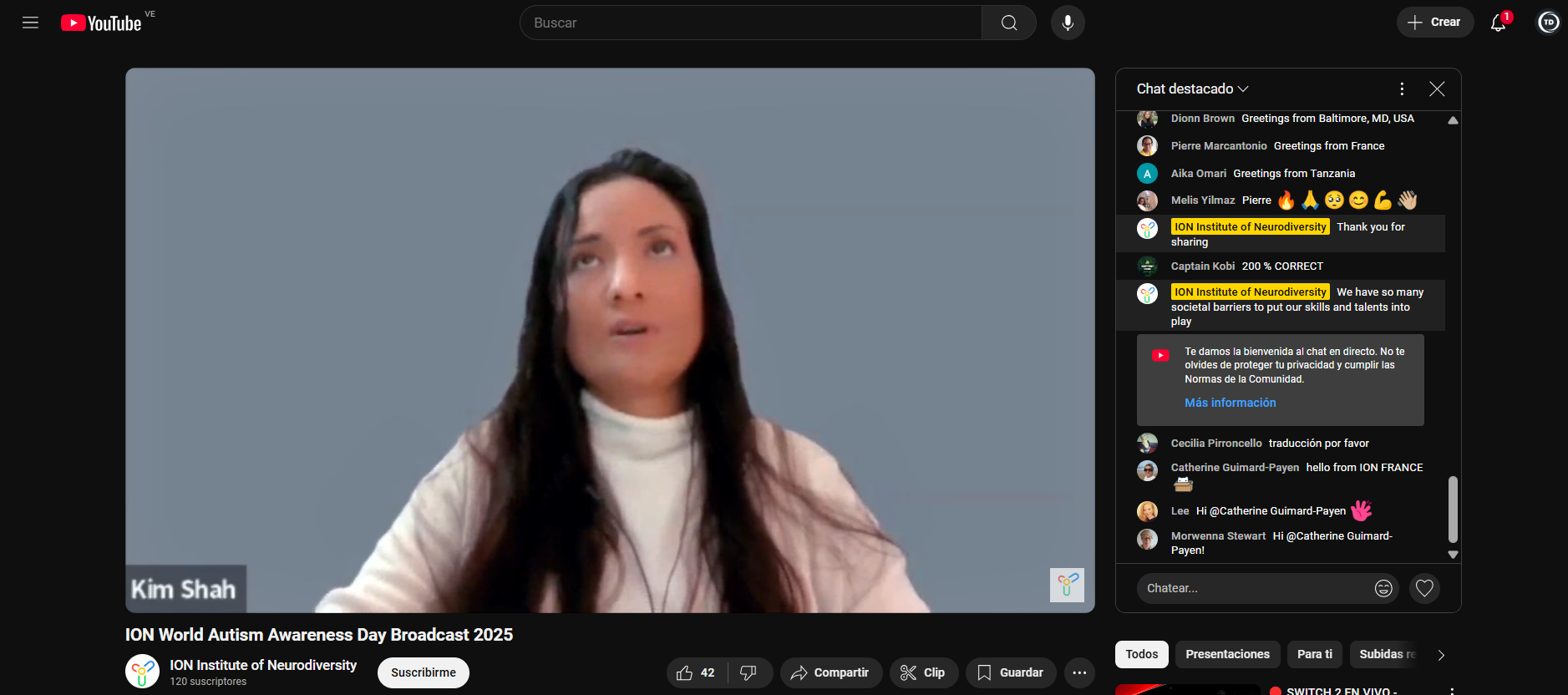
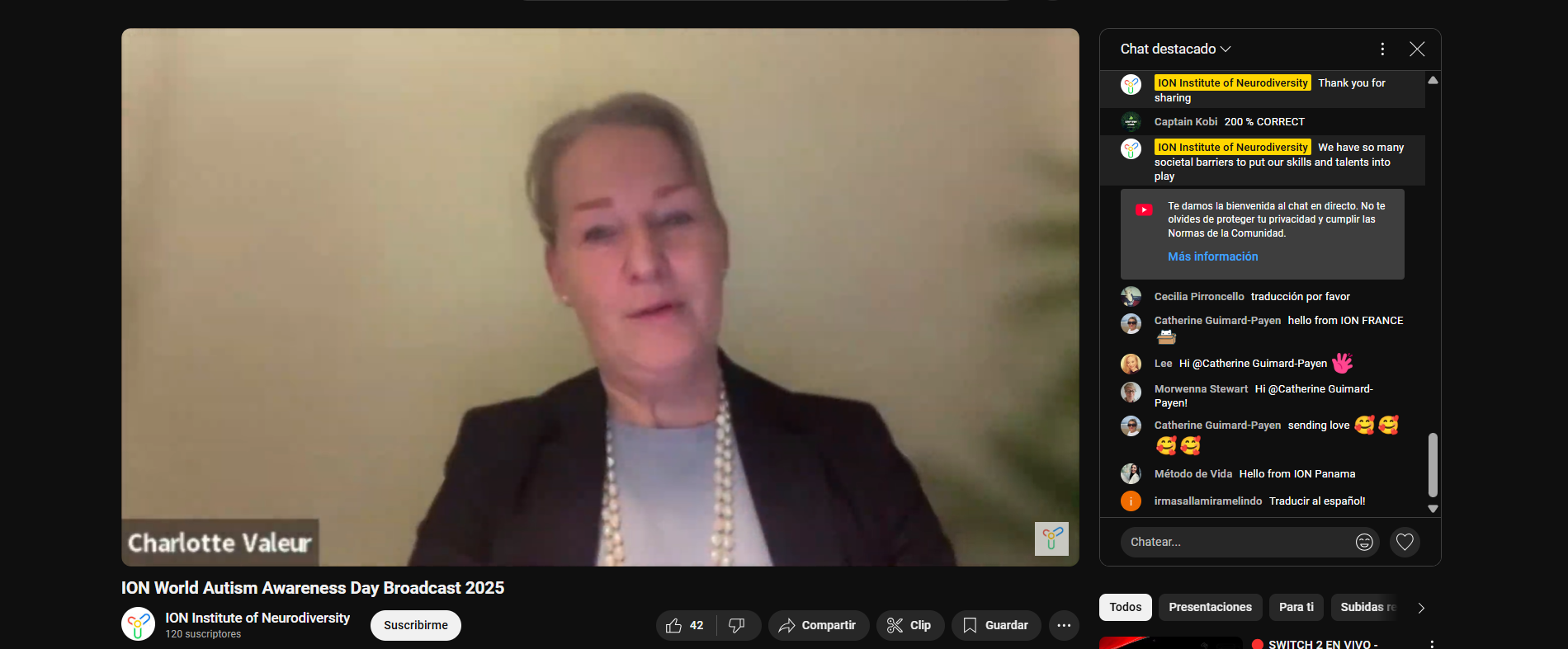
Pero puedo resumir que el tema que predominó fue la educación igualitaria y las mismas oportunidades para las personas con autismo. Todo el panel coincidía que priorizar las oportunidades de aprendizaje le dará las herramientas y la capacidad de ser independientes a las personas con autismo, ya que los avances médicos para prevenir o dar mejor calidad de vida, no estarán al alcance de todos, pueden que sean muy costosos, por lo tanto es mas viable costear esfuerzo en la educación que es gratuita y la mayoría de la población accede a ella.
>But I can summarize that the predominant theme was equal education and equal opportunities for people with autism. The entire panel agreed that prioritizing learning opportunities will give people with autism the tools and the ability to be independent, since medical advances to prevent or provide a better quality of life won't be accessible to everyone; they may be very expensive. Therefore, it's more viable to invest effort in education, which is free and accessible to most of the population.
Otro punto que predominó en el foro fue, que el modelo universal de discapacidad siempre se centra en las etiquetas, nos gusta calificar siempre a los que supuestamente menos pueden, por eso es muy importante centrarnos menos en las etiquetas y más en el acceso. Esto es uno de mis temores, que mi hija al llegar a la edad adulta sea etiquetada y no tenga acceso a las mismas opciones de estudios superiores, empleo o desarrollo de sus metas a través de las instituciones donde viva.
>Another point that prevailed in the forum was that the universal disability model always focuses on labels. We always like to label those who supposedly can do less, so it's very important to focus less on labels and more on access. This is one of my fears, that my daughter, upon reaching adulthood, will be labeled and won't have access to the same options for higher education, employment, or the development of her goals through the institutions where she lives.
Latinoamérica está muy atrasada en cuanto a estos temas, es lamentable ver como el colectivo poco se suma a este tipo de iniciativas, lo que es importante no es viral, vende más la controversia y la maldad. Cuanto más reconozcamos que el autismo o la neuro-divergencia no es motivo para etiquetar y excluir, sino que simplemente es una diferencia, se ganará más acceso para quienes lo necesitan, por eso cada vez que puedan eleven sus voces, publiquen sobre el autismo, hablen al respecto, no lo escondan con vergüenza, haganse notar por el bien de quienes queremos tanto.
>Latin America is far behind on these issues. It's unfortunate to see how little the collective joins in these types of initiatives. What's important isn't viral; controversy and evil sell more. The more we recognize that autism or neurodiversity is not a reason to label and exclude, but simply a difference, the more access will be gained for those who need it. That's why, whenever you can, raise your voices, publish about autism, talk about it, don't hide it with shame, make yourselves noticed for the sake of those we love so much.
***
Photos taken by ©danielcarrerag copyright reserved. These images may not be reproduced, distributed or used without the express permission of the author.